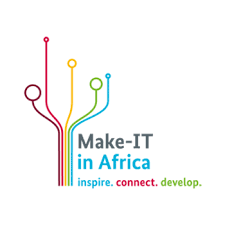Make-IT in Africa is a program run by a Kenyan based startup incubator called Nailab. The program offers training and mentorship to entrepreneurs on how to help them grow their ventures. Experts have thrown their weight behind the program. They have said that it increases the startups’ rate of survival to five years or more. This is compared to those that do not take part in the program.
This was the first time the program was taking place in Kenya. Funded by the Deutsche Gesellschaft für Internationale Zusammenarbeit (GIZ) Make-IT in Africa seeks to agitate for digital innovation for inclusive and sustainable development in Sub-Saharan Africa. According to the Make-IT in Africa regional coordinator in East Africa Mutembei Kariuki, the program has been operational for nine months. The partnership with Nailab was meant to last for three months. This was aimed at supporting startups and training them on the growth of the business. The other phase of the program will last for three months. It will receive support from Victoria Ventures, Venture Capital for Africa and German Chamber of Commerce.
It is always an advantage for startups that receive industrial support since it helps them to get their ventures ready for the market. In a survey carried out by United Parcel Service on the importance of training and mentorship discovered that 70% of startups that got mentorship survive for five years or more. This is twice the number of those who do not get mentorship. This is because startups get support from industry experts on how to overcome challenges that come with businesses. The program also helps startups to get customers, learn how to manage their business and how to deal with the market competition.
ClinicPesa startup is one of the Nailab’s graduate. ClinicPesa is a platform that offers access to financing of healthcare to those who do not have insurance cover. Genexe Engineering Company also has its roots in Nailab. It produces energy efficient stoves. Another Nailab graduate is Taimba. This is a mobile-based platform that links small-scale farmers from rural to urban-based micro-traders. Redhunt company also has its roots in the Nailab. The company assists public and medical practitioners to locate and access the blood required during emergencies.
Nailab has managed to partner with a number of organizations since 2010. Apart from Make-IT in Africa Nailab has partnered with SOS Ke, NL, Amref Kenya, and UNFPA. Nailab has also collaborated with various international organizations like Netherlands based Good UP and Belgium based Gap. Furthermore, it has hosted events with other partners such as UNCTAD. UNCTAD event had Chinese businesses. Chinese billionaire Jack Ma was the main speaker at the event. Head of communication, marketing and stakeholder management at Nailab Josephine Mwangi lists a number of startups that trace their roots back to the incubator’s program. They include Tozzaplus in 2018, B-track in 2017, Imara TV in 2016, Herdy.Co in 2015, Kejahunt in 2014, Duma Works in 2012, and Eneza Education in 2011.
A startup that has gone through Nailab’s program has had a 10% rate of survival. The startups have also recorded a minimum of three years for them to realize a consistent revenue generation. Some have raised startup capital worth more than 5 million dollars. Ms. Mwangi says that the program works on minimizing the time frame that the product takes to get to the market. Furthermore, it uses its pool of partners to help startups reach the market in the shortest time possible. They also access industry mentorship and capital. Nailab’s group of startups is serving 500,000 B2C clients and 10,000 B2B clients. The startups have managed to create 178 direct jobs and more than 1,000 indirect jobs. This is on various platforms like Kuhustle that links freelancers to available projects. Other platforms are Herdy that opens up markets for farmers produce and Duma works a job recruitment platform.



